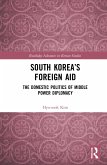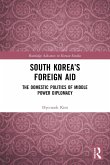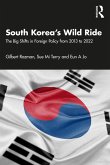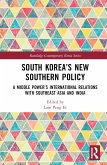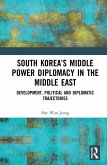In December 2024, South Korea faced a profound political crisis that tested the resilience of its democratic institutions. President Yoon Suk Yeol's unexpected declaration of martial law on December 3, citing alleged threats from North Korea and domestic unrest, ignited widespread controversy and civil unrest. The swift backlash from the public and political entities culminated in the National Assembly's decisive impeachment vote on December 14, leading to Yoon's suspension from office. "South Korea's Political Crisis: The Impeachment of President Yoon Suk Yeol" provides an in-depth analysis of these pivotal events, offering readers a comprehensive understanding of the factors that led to this unprecedented situation. The book meticulously examines the historical context of South Korea's political landscape, tracing the evolution of its democratic institutions and highlighting previous instances of political turmoil, such as the impeachment of President Park Geun-hye in 2017. Delving into President Yoon's background, the narrative explores his career trajectory from a prominent prosecutor to his election as president in 2022. It scrutinizes his key policies, particularly his hardline stance toward North Korea and his alignment with the United States, providing insights into how these positions influenced his governance and public perception. The book offers a detailed account of the events leading up to the crisis, including the corruption scandals and declining approval ratings that plagued Yoon's administration. It analyzes the political dynamics following the opposition's victory in the April 2024 parliamentary elections, which significantly limited Yoon's legislative power and set the stage for the ensuing conflict. A pivotal chapter focuses on the declaration of martial law, providing a chronological narrative of the events on December 3, 2024. It examines the justifications presented by President Yoon, the immediate public outcry, mass protests, and the parliamentary opposition that led to the swift reversal of the martial law decree. The impeachment proceedings are dissected to elucidate the legal framework and procedures for impeachment in South Korea. The book details the National Assembly's initiation of the process, culminating in the 204-85 vote in favor of impeachment, and discusses the Constitutional Court's role in determining the final outcome. Attention is given to Prime Minister Han Duck-soo, who assumed the role of acting president following Yoon's suspension. The narrative explores his efforts to stabilize the government, maintain continuity in domestic and foreign policies, and navigate the nation through this turbulent period. The economic implications of the political crisis are analyzed, highlighting market volatility, investor confidence, and the government's measures to mitigate economic fallout. The book also examines regional and international reactions, including responses from key allies like the United States and concerns about regional security dynamics, particularly the potential exploitation of South Korea's political instability by North Korea and other regional actors. In its concluding chapters, the book contemplates potential future scenarios depending on the Constitutional Court's ruling on the impeachment. It discusses the possible outcomes-upholding or overturning the impeachment-and their implications for South Korea's political future, democratic resilience, governance stability, and international relations. "South Korea's Political Crisis" serves as a crucial resource for understanding a defining moment in the nation's history. Through meticulous research and insightful analysis, it reflects on the lessons learned and outlines the path forward for achieving political stability and economic prosperity in South Korea.
Bitte wählen Sie Ihr Anliegen aus.
Rechnungen
Retourenschein anfordern
Bestellstatus
Storno


